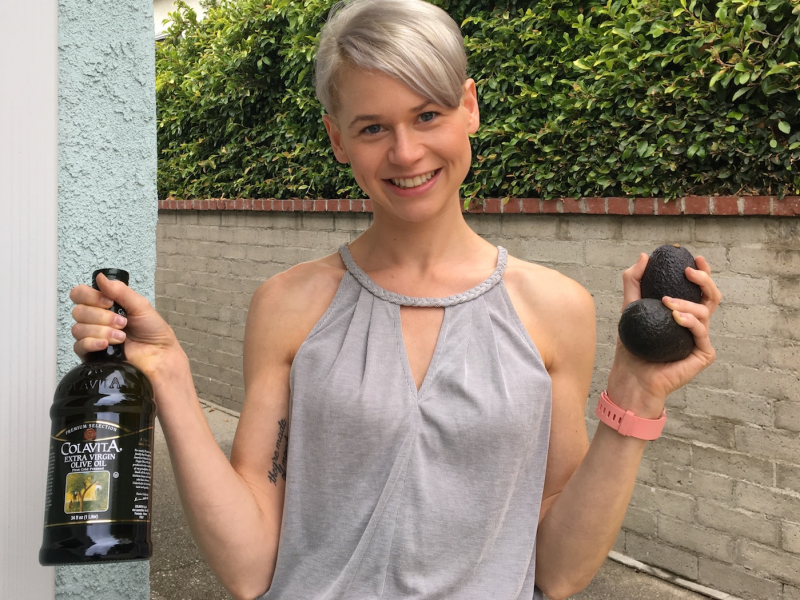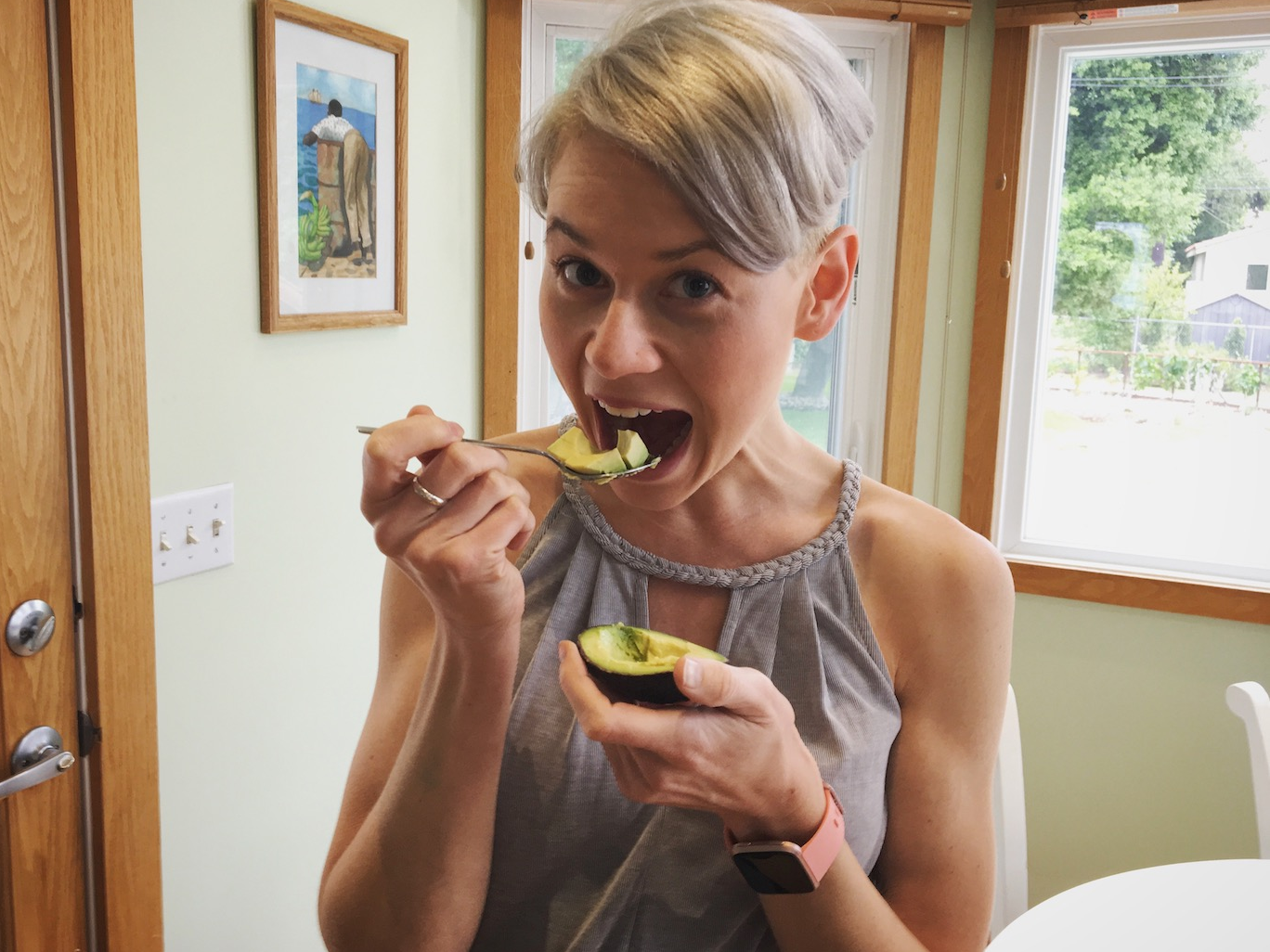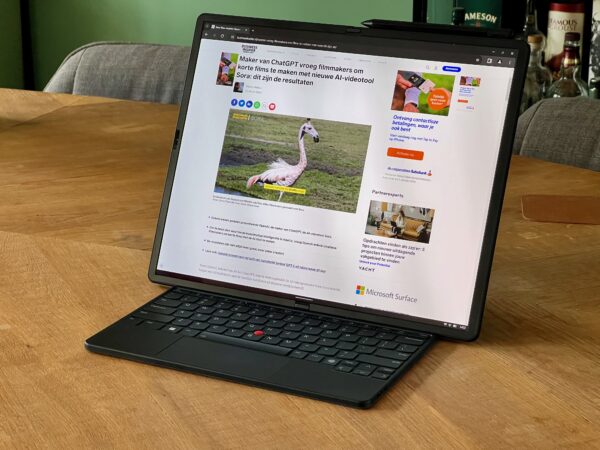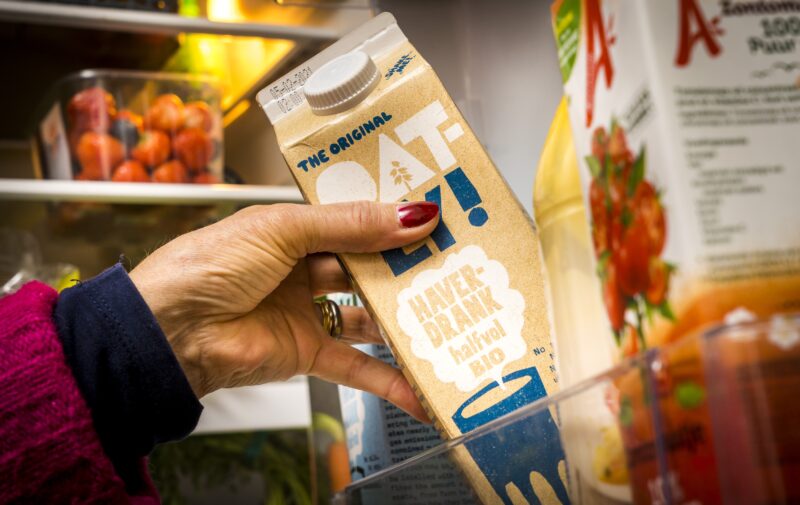- I tried the Mediterranean diet, a whole-foods meal plan based on vegetables, fish, and healthy fats like those from olive oil and avocados.
- The plan has been linked to benefits like a lower risk of disease, a healthier mind, and reduced symptoms of depression.
- I learned a lot while trying the regimen, and I’d like to stick with it for a long time.
You could say I’ve been around the diet block. I’ve been vegan, restricted my eating to an eight-hour window as part of an intermittent fast, and given the ketogenic diet a try – all in an attempt to give myself more energy, feel healthier, and power through the activities I enjoy, like yoga, hiking, and rock climbing.
The one regimen I’ve never tried, however, is the one I write about most: the Mediterranean diet.
The plan’s cornerstones are vegetables, fish, olive oil, beans, nuts, and whole grains. Items like processed foods, red meat, poultry, and dairy get slashed.
Studies suggest that people who eat this way have a reduced risk of diseases like heart disease, diabetes, and some types of cancer, so it’s no surprise that dietitians and clinicians say the approach is a great way to fuel the body. An expert panel convened by U.S. News & World Report also called the Mediterranean diet the best overall diet, for the second year in a row.
Leafy greens provide key vitamins and minerals needed for healthy skin, hair, and nails, while whole grains support good digestion, and fish and nuts provide protein to maintain muscle and keep energy levels steady. The Mediterranean diet is also rich in several ingredients that may be critical to a healthy mind, and one recent study found that people with depression who were put on the diet saw a significant reduction in symptoms.
Two types of healthy fat - monounsaturated and omega-3 fatty acids - are staples of the plan, as well as several antioxidants found in berries and dark chocolate. Previous studies have found a link between both of these ingredients and a lower risk of dementia and higher cognitive performance.
Research has also suggested that two other Mediterranean ingredients - leafy greens and berries - could help protect against a phenomenon called neuro degeneration, which often characterizes diseases including Alzheimer's and Parkinson's.
I'm a sample size of just one person, so it's worth taking my experience of the diet with a grain of salt. That said, I learned a ton on the plan. Here's a glimpse.
I initially thought that adopting the Mediterranean diet wouldn't involve dramatic changes to my existing habits. I love crunchy veggies like broccoli and put avocados on everything. But I also eat a lot of ready-made items full of ingredients that the plan shuns, like white rice.
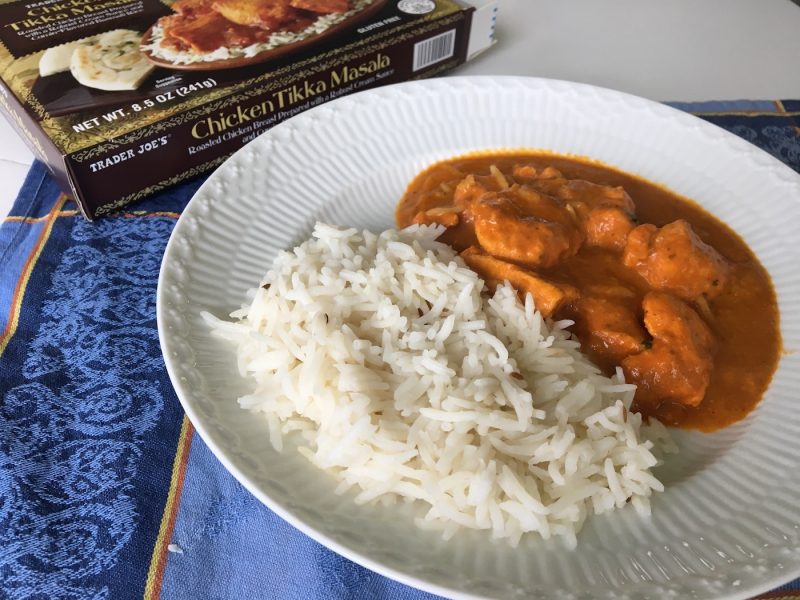
One of my favorite go-to meals at the end of a busy day is a Trader Joe's chicken tikka masala frozen dinner. With a big helping of white rice and chicken as the main ingredients, however, it's not very Mediterranean-diet-friendly.
So I hit Trader Joe's for basics: olive oil, frozen and fresh produce (depending on what was on sale), several kinds of frozen fish (half the price of fresh), canned beans, lemons, Greek yogurt, whole-grain bread, brown rice, and roasted nuts.
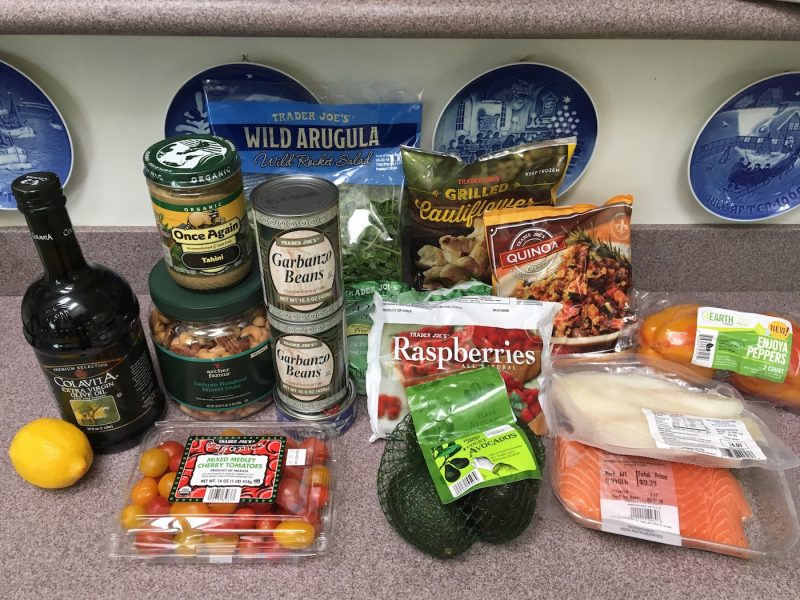
Research suggests I'm not the only one who's found the Mediterranean diet easy on the wallet. People put on the plan as part of a recent study saved roughly $26 per week — or $1,344 per year — compared to those who stuck to a traditional diet.
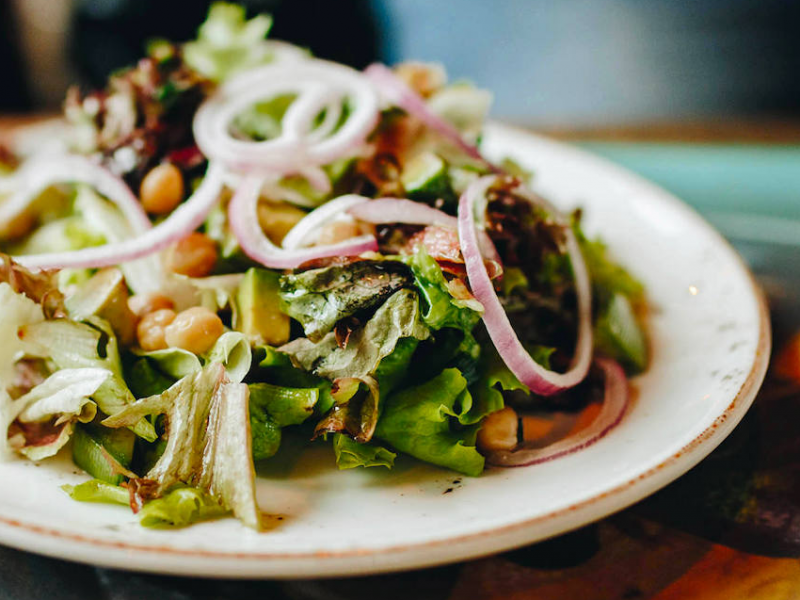
One thing I love about the Mediterranean diet is that it includes flavorful full-fat foods like avocados, olive oil, nuts, and fish. You can eat eggs in moderation on the plan, too.
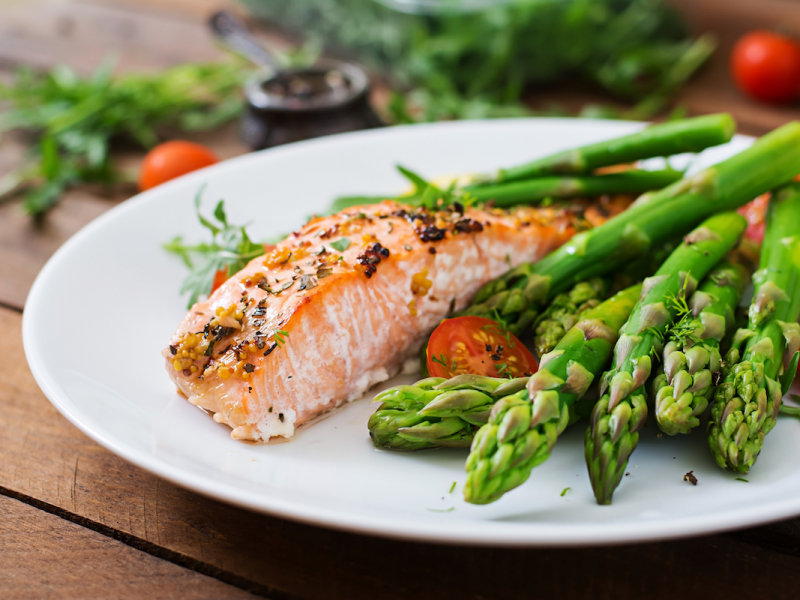
For my first meal, I made a simple breakfast: Greek yogurt, nuts, and berries dusted with cinnamon. It involved no cooking and lined up closely with what I've heard from several experts about easy healthy breakfasts.
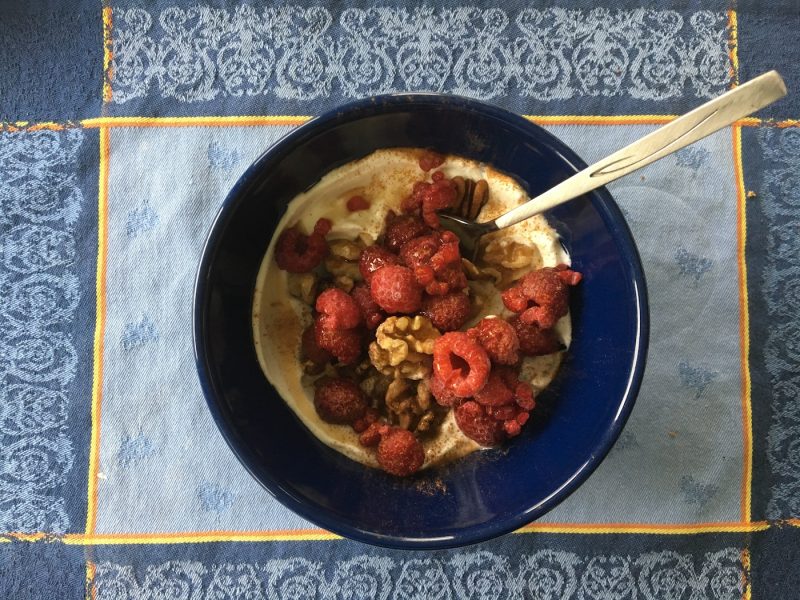
After making this, I realized I basically copied a quick breakfast that I'd heard about from Harvard physician Monique Tello. She eats a combination of berries, Icelandic high-protein yogurt, nuts, seeds, and oats. It's high in protein to fuel her muscles and has plenty of fiber, which fills her up and regulates her digestion.
My breakfast did the same thing - I wasn't hungry until around 1 p.m.
Processed foods were off the Mediterranean menu. They're all rich in refined carbs, which raise blood sugar and don't keep you full. So I gave most of my favorite sweets and snacks to my partner.
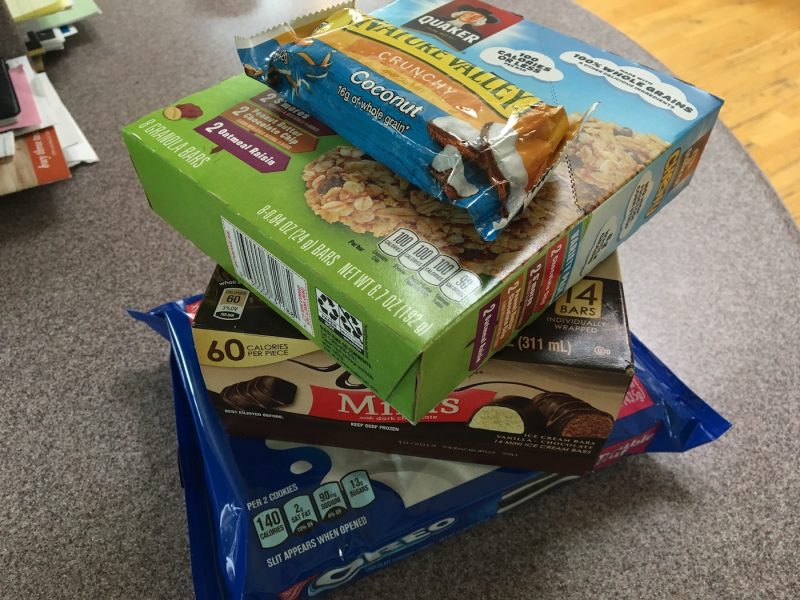
Refined carbs lurk in dozens of processed foods like granola bars, baked goods, pizza, and pasta.
Compared with their whole-grain counterparts, which are digested slowly and fill you up for hours, refined carbs get processed quickly by the body and are rapidly turned into sugar.
Roxanne B. Sukol, the medical director of the Cleveland Clinic's Wellness Institute who specializes in preventative medicine, says people should think of the ingredient simply as "stripped carbs."
But I love sweets, so I found I could still have dark chocolate on the plan, since it is minimally processed. That became my new favorite dessert.
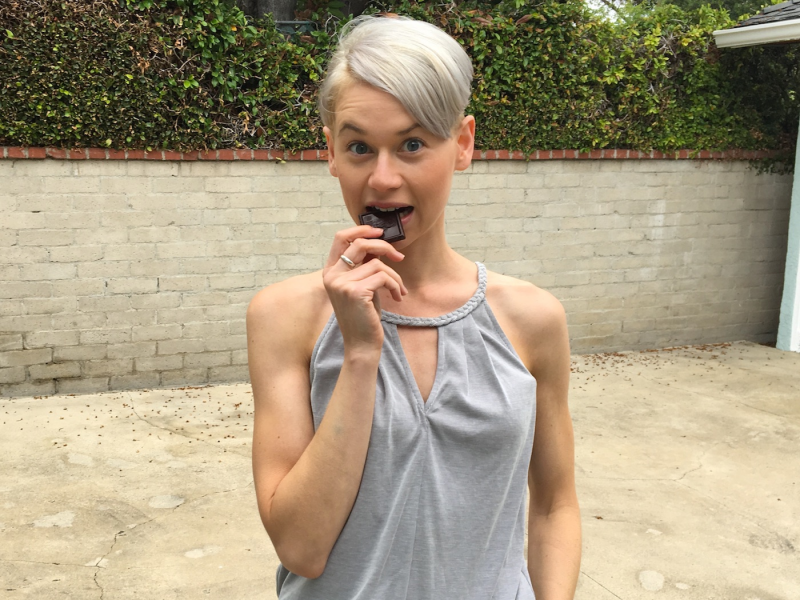
I also learned I could still eat some of my go-to frozen meals with small tweaks. Instead of a chicken and rice dish, I bought one with fish and swapped the rice for diced cauliflower.

I thought some of these tweaks would leave me hungry, but the more I trimmed back on things like white bread and white rice, the more energy I had.

Normally when I get home after work, my puppy, Dax, drives me bananas with his excitement. But after about a week eating Mediterranean, it felt easier to match his energy levels.
I also noticed a slight pick-up in my mood, another benefit that recent research supports. A small study published last year found that people with depression who were put on the Mediterranean diet alongside their normal treatment saw a significant reduction in their symptoms.

Source: What you eat could have more of an impact on your mood than we thought
When I didn't feel like making a complex dinner at the end of a long workday, I often made a breakfast-style dish, like this one with eggs, spinach, and tomatoes. It was filling and tasty.
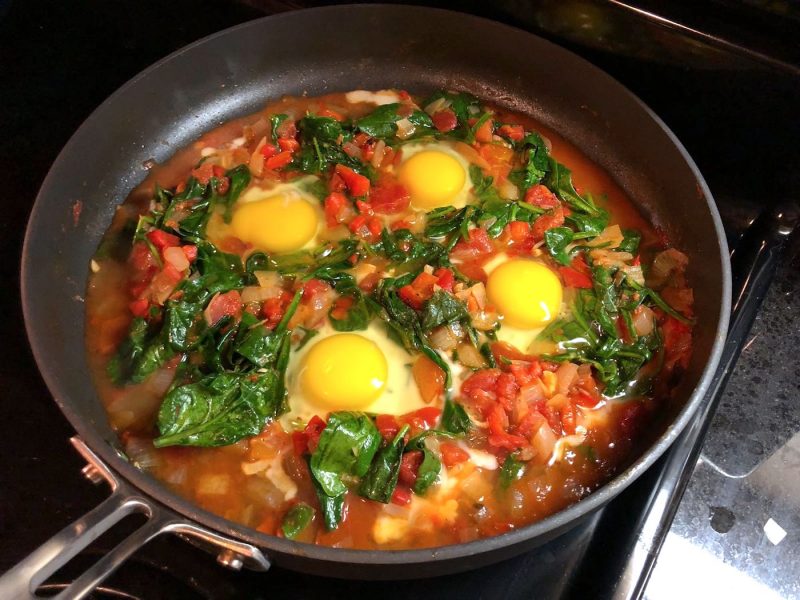
During the work week, I packed my lunches as much as I could. A few times when I forgot to plan ahead, I went to a fast-casual chain near my office where I could fill up a bowl with a selection of ready-made salads and protein. While the food was delicious, it wasn't cheap.
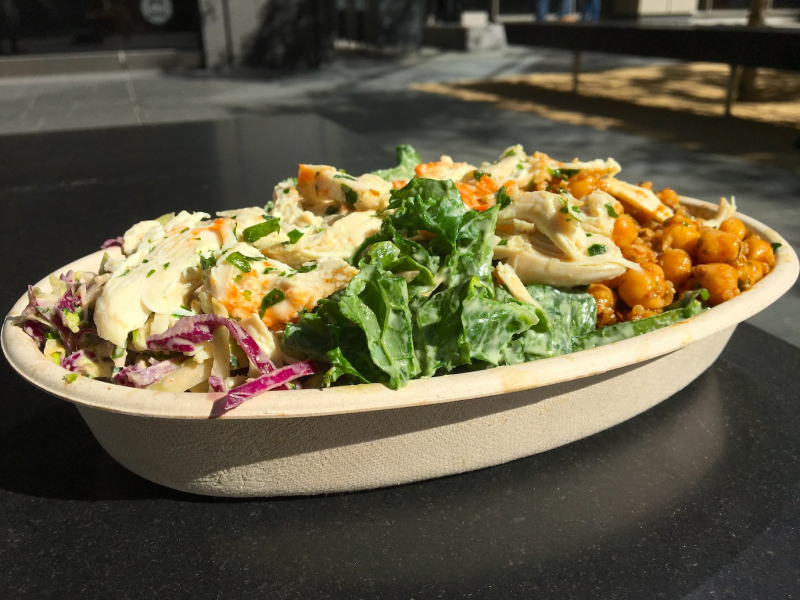
My $13 lunch came with several premade salads - with cabbage, kale, chickpeas, and quinoa - and seasoned trout on top.
A week into the diet, I was feeling really good. Instead of snacking all day, I was eating a lot more healthy, homemade meals — like this salmon-and-greens dish I made for dinner one night.
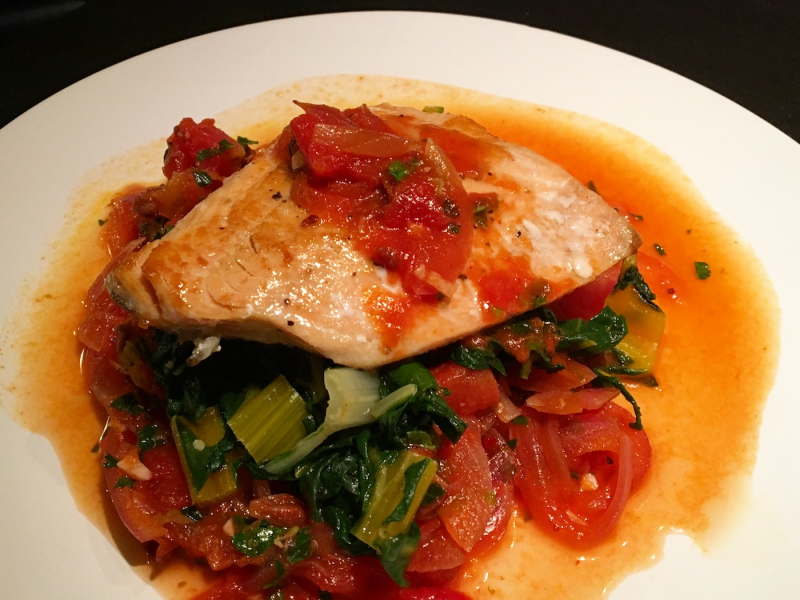
Beans are a big part of the Mediterranean diet. When I got tired of chickpea salads, I blended them up with tahini and olive oil to make fresh hummus. It became my new favorite snack.
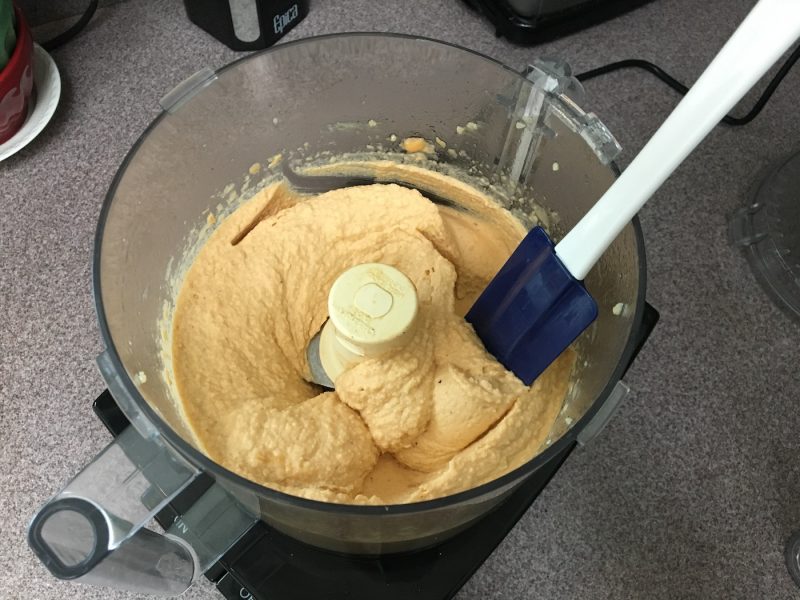
I would also dip whole-grain sesame crackers into an eggplant and bell pepper dip that I made.
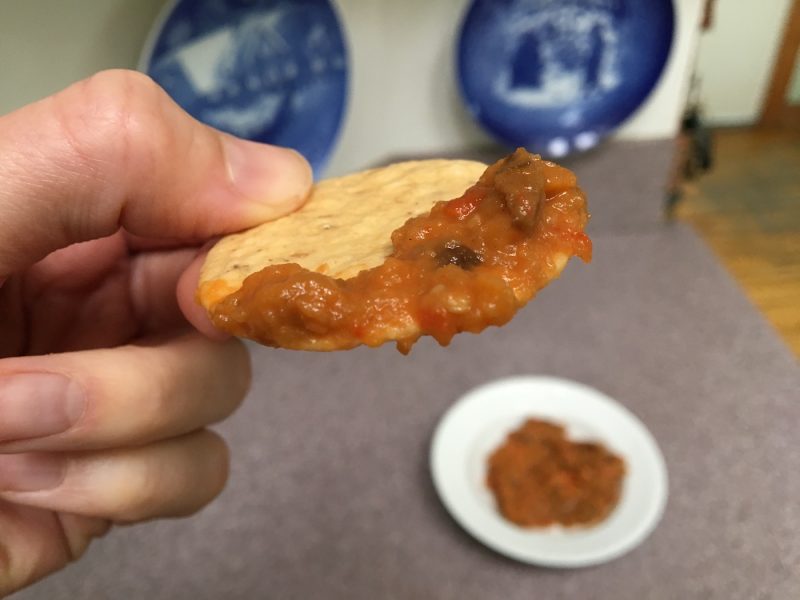
I never once felt like I was "dieting" on the Mediterranean plan. That said, my goal wasn't weight loss — I was looking for improved energy levels and food that was filling and tasty. The Mediterranean diet accomplished both of those goals for me, so I'd like to stick with it.
